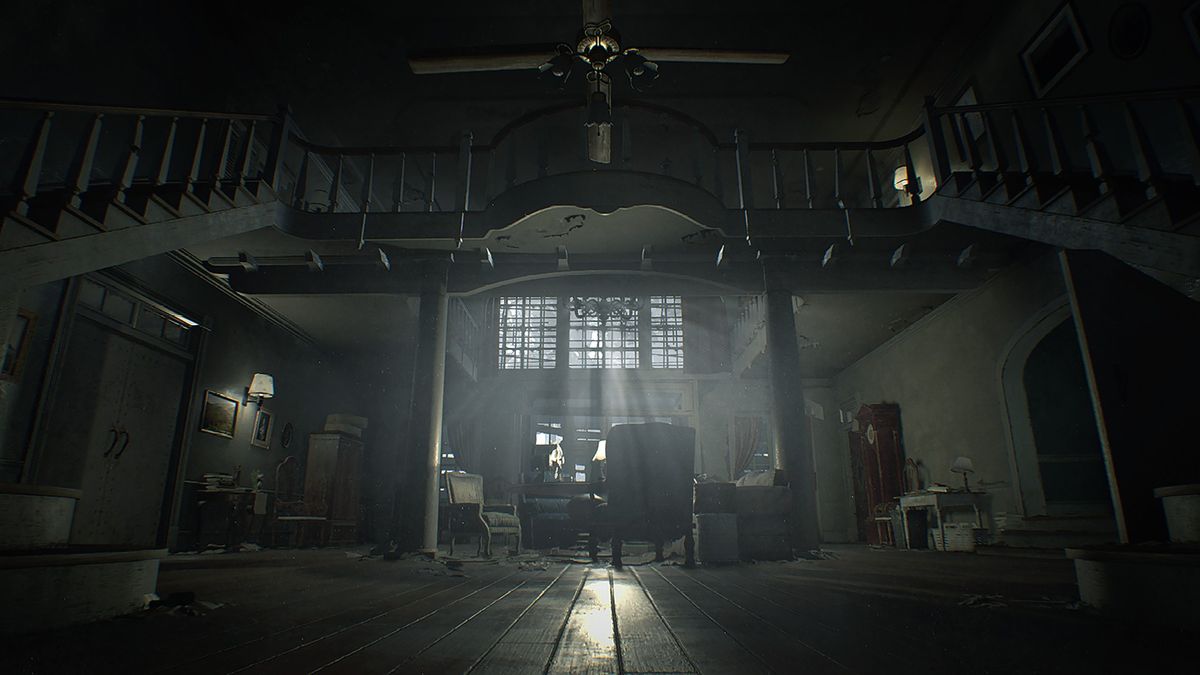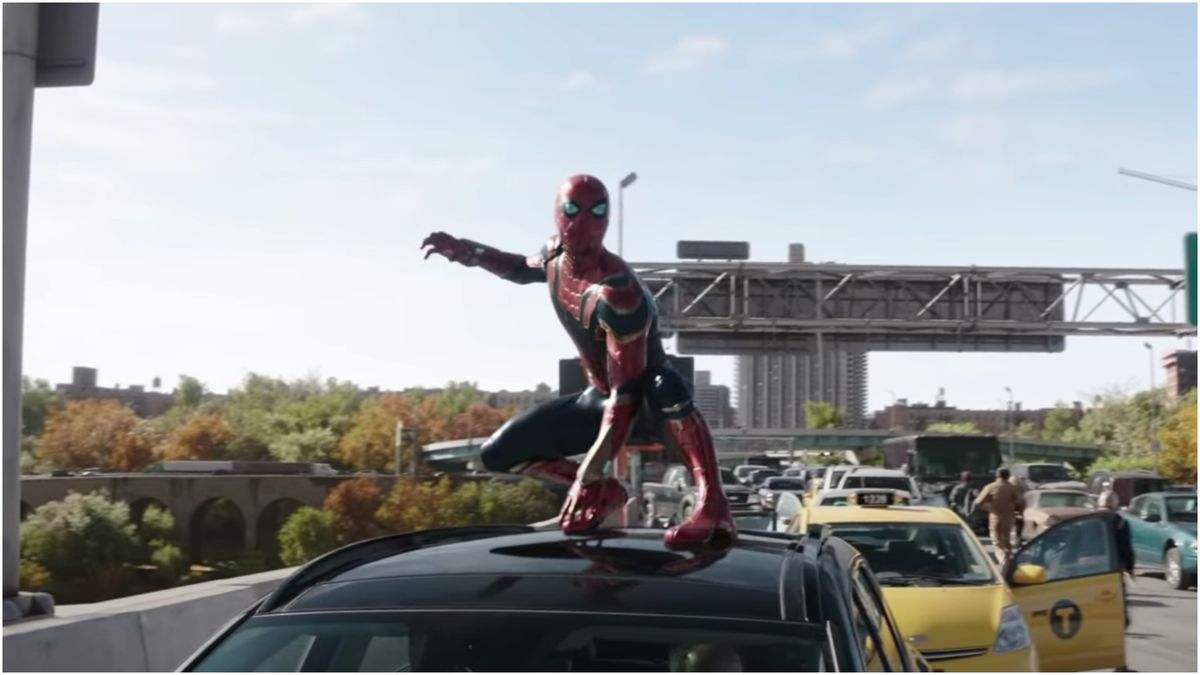Warning: I’m spoiling everything up in here. You’ve been warned.
Can a game be your favorite and least favorite at the exact same time? Because that’s the sort of mental gymnastics I’ve been dealing with since I rolled credits (full credits, mind) for the third time in Metal Gear Solid 5: The Phantom Pain, witnessing the game’s true ending. How can a game be this well-designed and brilliant to play and still feel like a total mess?
Well, for one, it’s a Metal Gear game. Metal Gear games are paradoxes – mega-budget productions made by huge teams that still have a spark of weirdness from an auteur that, whether you like his particular voice or not, shines through in every aspect. The Phantom Pain is no different, though it trades the series’ linear set-pieces and half-hour-long cutscenes for an open-world, do-what-you-like approach to the game’s many missions and a story more interested in immediate emotion than in ramming soliloquies down your throat every 15 minutes. It’s this shift in focus that is simultaneously MGS5’s greatest asset and biggest downfall.

Moment to moment, The Phantom Pain is one of the best games ever made, taking the building blocks first put into place by systems-driven games like Far Cry 2 and expanding on them in ways we’ve only dreamed of. Guards react to your actions by upgrading their weaponry based on your playstyle, their patrol routes randomized and responsive to everything they see or hear. MGS5 is an open world, but it’s not completely open, as there are certain pathways you’re forced to take to reach its myriad bases and outposts. So while you’re free to tackle each of the game’s missions how you see fit, there’s still an authorial hand guiding all the different moving pieces.
That kind of balance is incredibly difficult to get right, especially in an open-world game, but Metal Gear handles it flawlessly. It’s smart enough to know when to funnel you into specific scenarios, but trusting enough to pull back and let the game’s intertwining systems work their magic. It respects your intelligence enough to give you all the tools you need to tackle your objective without ever being overbearing. Did you accidentally kill the guy you were supposed to tail? Any other game would send you to a mission failed screen, but MGS5 says, “OK, so you screwed up your objective – now what, soldier?” It’s amazing when you can pull out a victory from the jaws of defeat, and those moments happen constantly in The Phantom Pain.
The same can’t be said for its story, whose pacing can only be described as… unconventional. The brilliantly horrifying and bizarre-even-by-Metal-Gear-standards intro sets the stage for an equally harrowing plot, but The Phantom Pain quickly devolves into a rote ‘rescue/kill this random dude because reasons’ story structure, with a few unexpected sequences peppered in as you progress.

Your mission: seek revenge against Skull Face for destroying Mother Base during the events of Ground Zeroes nine years ago. You go about this by taking on random jobs to earn money and soldiers to build up your forces – people you kill or extract are typically important generals or higher-ups, but they amount to nothing more than random targets in the grand scheme of the story, as the loss of their presence on the battlefield has virtually no effect on the day-to-day operations of your opposition.
It’d be one thing if MGS5 traded its long-winded cutscenes for a stronger forward momentum, but that’s clearly not the case here, as a whole lot of nothing happens in between quick bursts of exposition. I actually longed for Snake to say something – anything – in many of The Phantom Pain’s most pivotal scenes, as Kiefer Sutherland does a fantastic job with what few lines he has, bringing a subtlety and gravitas to the character that had never existed before. Instead, he stands mute for most of the game, occasionally interjecting while his advisors Miller and Ocelot bicker back and forth.
And that’s to say nothing of Skull Face, who is so undercooked as a villain that Gordon Ramsay would have thrown him in a trash can and called Kojima a donkey. You discover Skull Face’s master plan (involving parasites that infect the vocal cords, killing the host if they speak a specific language), eventually culminating in one of the most anti-climactic showdowns in video game history, as not one, but two of the game’s most intimidating villains are effectively Boba Fett’d (opens in new tab) out of existence. The world is saved, game over, roll credits.

But the game keeps going – now you’re entering ‘Chapter Two’, showing the further adventures of the Diamond Dogs as Big Boss’ army continues to grow. It’s here that MGS5’s bizarre pacing becomes truly evident, as story events just sort of happen to you at seemingly random intervals. Since the main conflict of the game is over, The Phantom Pain now focuses on the relationships you build with your men and your role as their leader, but it’s here that the game starts to drift along aimlessly.
It’s not that there aren’t any great moments in The Phantom Pain, and Kojima and crew make dozens of bold decisions in ways no other game would dare to make. A late-game outbreak back at Mother Base forces you to systematically murder dozens of your fellow soldiers, lest the virus spread further, all while your iDroid coldly declares “Staff Member Died” each time you put a bullet into the skulls of the infected. These aren’t just random people. These are the staff members you recruited, and they’ve been helping to make Mother Base a powerful force on the world’s stage. Another late-game mission permanently removes the scantily-clad crackshot Quiet (a character whose own paradoxical existence is worthy of her own, separate discussion) from your roster of buddies. A rescue mission goes south, and Quiet (infected with the English strain of the vocal cord parasites) utters her first words of the game to ensure your survival, effectively dooming herself to death.

Few developers would be willing to incur the wrath of players by creating one of the most powerful characters in the game, building out a wealth of upgrades for her, integrating her completely so as to make her absolutely vital during some particularly difficult missions, then taking her away forever. But it’s one of the many ways Kojima is able to express the game’s themes – of loss, of despair, of that lingering ‘phantom pain’ right there in the game’s title – and I respect the hell out of Kojima for removing a core component of gameplay to express those themes.
But ultimately, this scene, like so many others in The Phantom Pain, are just that: scenes, loosely connected by the barest hint of a story. Metal Gear Solid 5 doesn’t really have an ending in the traditional sense. There’s some closure with the death of Skull Face, but Chapter One leaves so many plot threads hanging that it can hardly be called a proper climax. You then wander from scene to scene, getting bits of closure here and there, until, at some arbitrary point, you unlock the true ‘ending’. But even that isn’t an ending, so much as it is a replay of the introductory hospital level, but with one important bit of information added: the character you’ve been playing the whole time isn’t actually Big Boss, but rather his loyal medic, who effectively becomes Big Boss thanks to some expert plastic surgery and the power of suggestion.

This is a bizarre bit of fridge logic (opens in new tab) that makes less and less sense the more I think about it, and it’s a strange way for The Phantom Pain to ‘end’, but putting logic aside (which is usually for the best when it comes to Metal Gear), it’s a hilariously Kojima way to give a big wink to all of the fans who have loved the series since the beginning. Now, the name and avatar you created at the beginning of MGS5 is technically also Big Boss, helping to build the legend that we come to hear about in later games in the timeline. Your character is even the one who fights Solid Snake (and unfortunately dies) at the end of the very first Metal Gear game. It’s a ridiculous twist, but it’s purely and distinctly Metal Gear, and I couldn’t help but smirk during The Phantom Pain’s denouement, that we’re as much a part of Metal Gear as the characters of Kojima’s own creation.
But it’s not an ending, and the one thing that you could conceivably call an ending to the loosely-connected set of events The Phantom Pain calls a story isn’t even on the disc. The collector’s edition documentary disc details a 51st mission (opens in new tab) that neatly ties up many of MGS5’s loose ends, capping the game off with what sounds like a hell of a final boss fight. But, for whatever reason – whether it was Kojima cutting it for unspecified reasons, or Konami, a company dying to get the hell out of video games, stepping in and forcing the game to be finished by September – this pivotal story mission didn’t make it into the game.

In fact, most of The Phantom Pain’s second half feels incomplete. Many of the main ops in Chapter Two are basically retreads of levels you’ve already beaten but on a harder difficulty, and their role as padding couldn’t be more evident. The true ‘ending’ isn’t revealed in some grand, explosive fashion, but simply presented on your list of things to do once you reach a specific set of milestones, making it feel hastily slapped in to give all of your prior actions context. And the four missions that unlock after the true ‘ending’ are more rehashes of old levels, with no narrative reward for completing them. Instead, you merely appear in your helicopter, ready to head back into the field to increase your mission ranking, cross off items on your side ops list, or to recruit more troops. It’s a shame, because there’s no sense of closure from the revelation that we were the real Big Boss all along, and the story as a whole ends up feeling hollow as a result.
So if you’re taking The Phantom Pain strictly as a Metal Gear ‘experience’ – that is, the narrative, the twist, the connection to the broader series as a whole – then the game is an inconsistent, unfinished disappointment. But when looking at The Phantom Pain as the story of Diamond Dogs and my time as its leader; of the individual vignettes I experienced both on and off the field; of the demon I had to become to see my team through the hardest of trials; then MGS5 is quite possibly one of my favorite games of all time. And there are so many great stories to tell merely within the framework of its gameplay that the paradox of The Phantom Pain becomes far easier to bear.

Even as the lackluster story weighs heavily on my heart as a die-hard Metal Gear fan, I’m still excited to go back and finish off the rest of side ops, to mess around with its numerous systems and see how else I can exploit them, as well as invading other players’ forward operating bases. And besides, I shot a bear up with tranquilizer darts and strapped a balloon to its leg to send it back to a burgeoning zoo back at my base, I built my relationship with my horse high enough so he’ll poop on command, and my helicopter plays Spandau Ballet’s “True” when it picks me up. Games have won awards for far less.
 Game News Video Games Reviews & News
Game News Video Games Reviews & News



